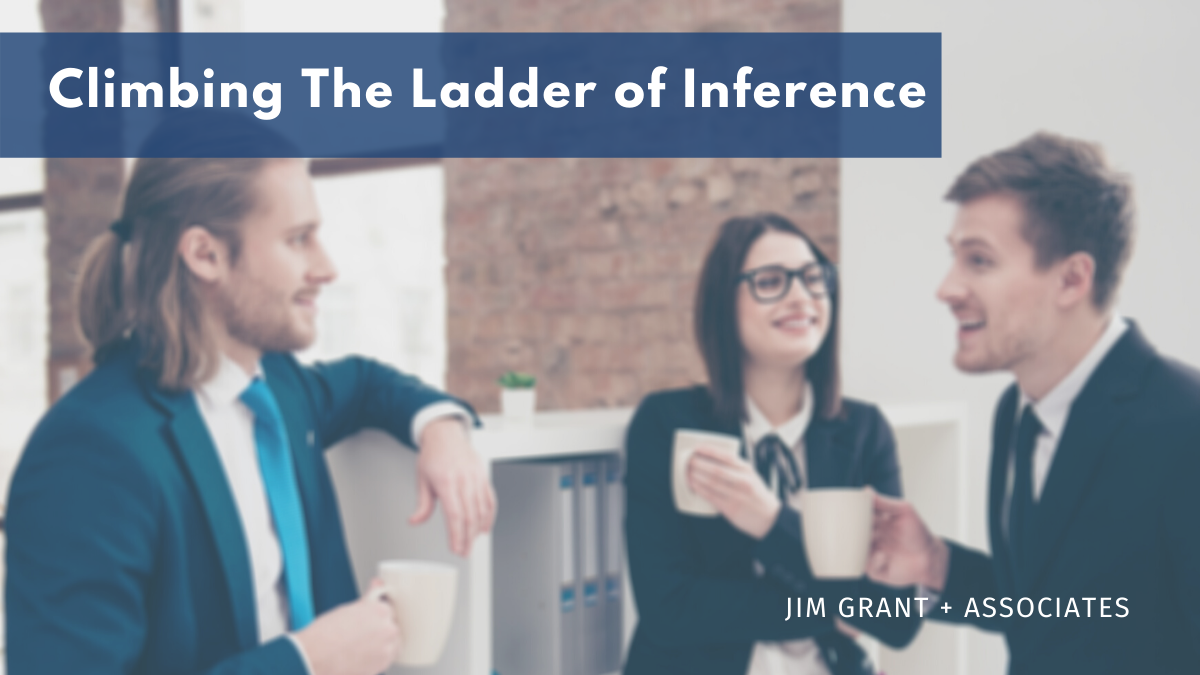Change, Coaching, Leadership, self awareness
Climbing The Ladder Of Inference
Climbing The Ladder Of Inference
Have you ever had something like the following experience? You take a much-needed coffee break and walk up to the café bar, where two of your friends are already gathered. They stop talking when you approach. The observable information you have is around their physical location and the fact that they stopped talking. Yet did you leave it at that? Probably not!
More likely, you chose data from what you saw. For example: They were obviously embarrassed to see me. Were they? Are you sure? And even if you are right, what possibility is there that might explain their embarrassment? However, it is too late – you have already made assumptions based on the meaning you saw: They must have been talking about me. From there, a conclusion is drawn. They were criticising me or keeping something from me behind my back and got caught out. You now adopt a belief: They don’t like me anymore. And from then on you become cautious in those relationships because you have decided to act on your belief: I will be much more cautious in my friendship with them.
We see things happening, we hear words spoken, and we notice emotions and moods. We are selective in what we choose to see, hear, and observe, giving it our own meaning. We make assumptions based on that meaning. We then draw conclusions, adopt beliefs, and act or respond based on those beliefs. It is what Peter Senge called the ‘ladder of inference’, and the above example demonstrates how even a brief and potentially innocent interaction can turn the tide in a relationship, based on the inferences we make.
As skilled thinkers with vast experience, we jump up the ladder often without knowing it, unconsciously taking account of some data, and ignoring other, interpreting it, and drawing conclusions from it. It is a common habit that is a direct consequence of not thinking about our thinking – It’s obvious what’s going on, isn’t it? And not thinking about how we came to that conclusion.
Our assumptions, values and beliefs impact heavily on the inferences we make in conversations, talking and listening. Our models of how the world works and our repertoire of learnt actions influence the data we select, the interpretations we make and the conclusions we draw. Our conclusions lead us to act in ways that are often self-reinforcing – our thinking skills and apparent logic and reasoning being both an asset and, at times, a liability.
Read on to Avoiding Ladder of Inference …


